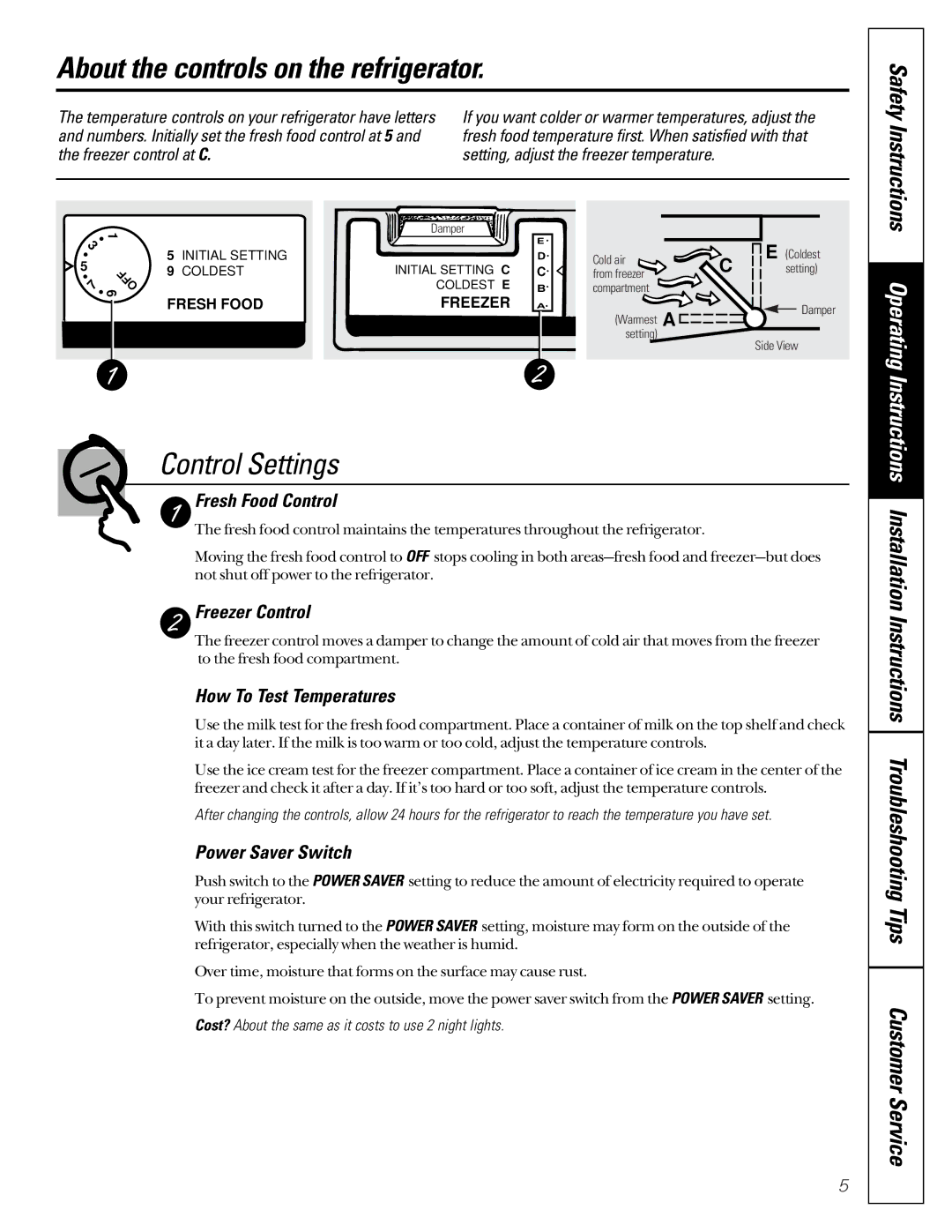
About the controls on the refrigerator.
The temperature controls on your refrigerator have letters | If you want colder or warmer temperatures, adjust the |
and numbers. Initially set the fresh food control at 5 and | fresh food temperature first. When satisfied with that |
the freezer control at C. | setting, adjust the freezer temperature. |
|
|
Safety Instructions
![]() 1 3
1 3
5
7 | 9 |
|
OFF
5INITIAL SETTING
9COLDEST
Damper
INITIAL SETTING C COLDEST E
E![]()
D![]()
C![]()
B![]()
Cold air | C |
| E | (Coldest |
| ||||
| ||||
|
| setting) | ||
from freezer |
|
| ||
|
| |||
compartment |
|
|
|
|
|
|
|
|
FRESH FOOD
FREEZER
A
(Warmest A setting)
![]()
![]() Damper
Damper
Side View
Control Settings
Fresh Food Control
The fresh food control maintains the temperatures throughout the refrigerator.
Moving the fresh food control to OFF stops cooling in both
Freezer Control
The freezer control moves a damper to change the amount of cold air that moves from the freezer to the fresh food compartment.
How To Test Temperatures
Use the milk test for the fresh food compartment. Place a container of milk on the top shelf and check it a day later. If the milk is too warm or too cold, adjust the temperature controls.
Use the ice cream test for the freezer compartment. Place a container of ice cream in the center of the freezer and check it after a day. If it’s too hard or too soft, adjust the temperature controls.
After changing the controls, allow 24 hours for the refrigerator to reach the temperature you have set.
Power Saver Switch
Push switch to the POWER SAVER setting to reduce the amount of electricity required to operate your refrigerator.
With this switch turned to the POWER SAVER setting, moisture may form on the outside of the refrigerator, especially when the weather is humid.
Over time, moisture that forms on the surface may cause rust.
To prevent moisture on the outside, move the power saver switch from the POWER SAVER setting.
Cost? About the same as it costs to use 2 night lights.
5
Operating Instructions Installation Instructions Troubleshooting Tips
